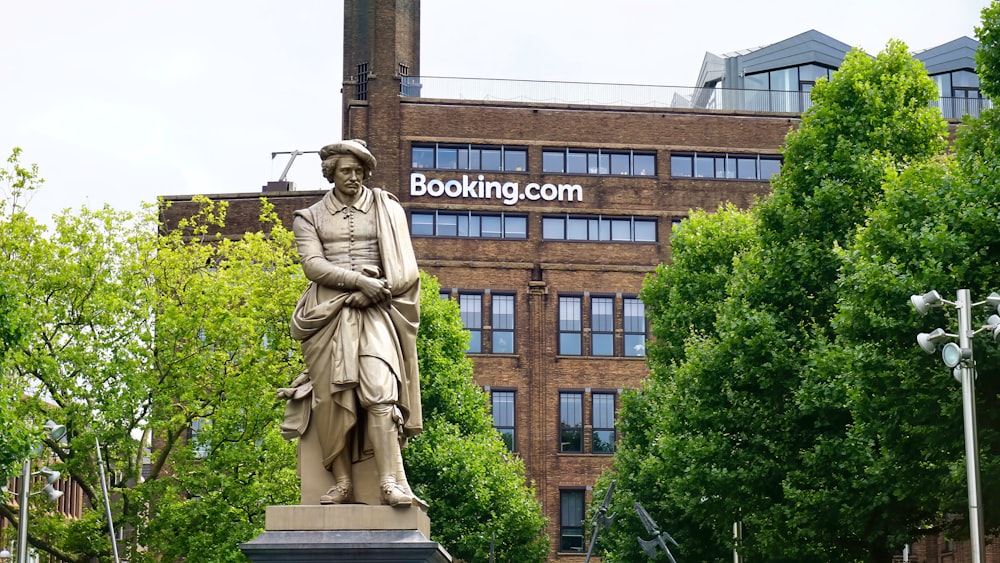Booking.com: Ready For A Travel Rebound
Source: Unsplash
Quick Summary
Booking Holdings operates a portfolio of online travel reservation services. Booking.com, Priceline.com, and Agoda.com are its 3 accommodation reservation networks, with nearly 30 million accommodations listings (hotels, motels, apartments, etc.), including 6.5 million in the alternative accommodations space (similar to Airbnb listings). The company primarily uses the "agency" model, where accommodation providers pay a commission for each booking and vacationers pay at the hotel after their stay (not up-front as in the merchant model). Travelers booked nearly 850 million room nights through Booking.com's properties in 2019. The company also offers activities reservations through its main networks, airline reservations through KAYAK.com, rental car reservations through RentalCars.com, and restaurant reservations through OpenTable - all using a similar pay-for-reservation model, with some advertising contribution. These last 3 are ancillary services - Booking Holdings earns well over 90% of revenues from its hotel/accommodation booking networks.
Does The Company Have Rising and Recurring Revenues?
SOMEWHAT. This is difficult to pin down as the worldwide travel market is very cyclical, and has been decimated by the COVID-19 pandemic. Certainly, Booking.com's 3-year annual revenue "growth" rate of -19% is unimpressive. Before 2020, though, Booking had been growing sales at about 12% annually on average. Travel demand is expected to bounce back strong post-pandemic, and the firm could see 20-30% annual revenue growth rates from 2021-2024, followed by 10-15% normalized growth afterwards. Global travel is an enormous market (almost $2 trillion) and Booking's market share is still low (under 10%). Big opportunities remain in Asia (where online travel is still under-penetrated) and alternative accommodations (where Booking is #2 behind Airbnb). While consumers can and will use alternative platforms to book trips, Booking Holdings earns its revenues from the providers, who are vested in keeping their properties as close to capacity as possible. While trips are transactional sales, and the volume of bookings will certainly ebb and flow with the economy, we feel the commission model is a reasonably reliable, recurring one.
Does The Company Have Durable Competitive Advantages?
YES. Booking.com's collective properties exhibit strong NETWORK EFFECT competitive advantages. Collectively, it is the world's largest online travel agency (OTA) by sales and has leading market positions in Europe (~50% market share) and Asia (high teens percentage market share and part-ownership of #1 player Ctrip). Booking and Expedia together control 60% of the worldwide OTA market. This makes the network highly attractive to both sides. On the supply side, hotels want to be on it to attract the largest number of customers, to keep their properties near capacity. On the demand side, travelers flock there to find the most accommodation options and best prices. To wit, Booking.com gets close to 50% of its web traffic from direct hits, and it is a top 10 travel application in 128 markets - far more than the next closest competitor. The main threat to Booking's network comes from the large internet firms that already have a lot of traffic adding travel services to their existing offerings. Google is probably its biggest threat here, but we think Booking's established and focused networks as strong against ancillary efforts like this.
GreenDot Rating: GREEN
Booking straddles the line between a GREEN (highly attractive) and YELLOW (somewhat attractive) business model. Certainly, there is a lot to like. Booking's network effect is very strong and has proven its worth through a challenging 2020-21 worldwide travel collapse. The global market is still massive, and offers growth potential in market share and online penetration, particularly in Asia. However, Booking has reached a large size and is starting to hit competitive boundaries where meaningful growth rates will be more difficult to achieve. We will stick with a GREEN rating for now, with a close eye on how revenue growth rebounds as the pandemic subsides.
Disclaimer: The content is provided by Alexander Online Properties LLC (AOP LLC) for informational purposes only. The material should not be considered as investment advice or used as the basis ...
more



